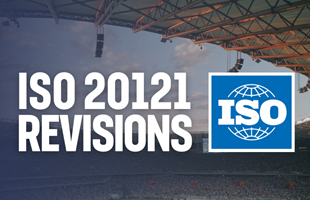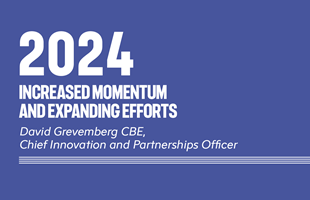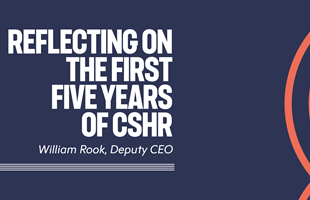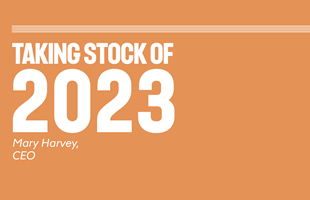David Grevemberg Joins Centre for Sport and Human Rights
18 Mar 2021
Author - Centre for Sport and Human Rights
Former Commonwealth Games Federation CEO David Grevemberg joins CSHR’s team to embed human rights standards across Sports Federations and event organisers
Key Facts
- David Grevemberg joins the Centre for Sport and Human Rights as Chief Innovation and Partnerships Officer
- Grevemberg led the Commonwealth Games Federation since November 2014
- Grevemberg’s new role will focus on engagement with the sports sector and development of new partnerships
David Grevemberg is joining the Centre for Sport and Human Rights (CSHR) as its Chief Innovation and Partnerships Officer. Having led the Commonwealth Games Federation (CGF) since November 2014, where he spearheaded efforts to integrate human rights principles and standards throughout the global organisation, David will play a critical role in expanding CSHR’s drive to embed respect for human rights in sports organisations and events around the world.
Grevemberg’s new role with CSHR will focus on engagement with the sports sector, and development of new partnerships. David will work with the CSHR team to lead projects that drive positive change in sport, including education and training initiatives and overseeing development of major new initiatives.
Grevemberg’s appointment comes during a period of growth at CSHR, which includes a number of other key colleagues joining the organisation.
- Lucy Amis, one of the originators of the work that led to the launch of CSHR, and most recently of Unicef UK, will bring expertise on mega-sporting events, child rights and broader business and human rights.
- Kat Craig, an award-winning human rights lawyer, founder of Athlead and former Legal Director of Reprieve, will join part-time to lead the roll-out of work on access to remedy in sport.
- Thays Prado, who worked previously as Global Sports Coordinator at UN Women, is leading the development of CSHR’s gender strategy and programme.
- CSHR is also in the process of launching its own independent governance structure and will soon announce the appointments of a new Board of Directors.
David Grevemberg worked for over a decade for the Commonwealth Sport Movement, both as the Chief Executive of the Glasgow 2014 Commonwealth Games, and more recently as the CEO for the CGF. He transformed the CGF’s focus from oversight of its major games to a dynamic, strategic movement focused on legacy, impact and community benefit. His connection with the Commonwealth movement dates back to the Manchester 2002 Commonwealth Games, in his role as the International Paralympic Committee (IPC) sports director.
Mary Harvey, the Centre’s CEO, said: “David brings a unique set of skills and experiences to this new role - he has been a true leader for human rights in sport, and his unique expertise will make us considerably stronger in our engagement with sports bodies and event organisers. Having David join our team just after completing his groundbreaking work with CGF is a tremendous opportunity to accelerate our development and profile. This is also a learning opportunity for our team, and an opportunity to offer sports bodies a chance to work with someone who has been an agent of change within the sector.”
David Grevemberg said: “This is a critical moment for the future of sport. The next two years have so many events in a compressed timeframe with real opportunities to reshape sport post-COVID. The future of sport is responsible and harm-free, and CSHR is uniquely positioned between the worlds of sport and human rights to be a major catalyst in this change. I’m looking forward to joining a fantastic CSHR team, supporting Mary Harvey and William Rook, and contributing what I’ve learned in my 25 years in sports governance and management.”
About the Centre for Sport and Human Rights
Launched in June 2018, CHSR works towards a world of sport that fully respects human rights by sharing knowledge, building capacity, and strengthening the accountability of all actors through collective action. CSHR is chaired by Mary Robinson, former President of Ireland and former UN High Commissioner for Human Rights.
Follow the Centre for Sport and Human Rights here:
CSHR Website
@SportandRights on Twitter
Sport and Rights Podcast
CSHR on Youtube
For More Information
Centre for Sport and Human Rights
Matt Stone
Communications Manager
[email protected]
+44 7493696149
CEO Mary Harvey on David Grevemberg’s appointment
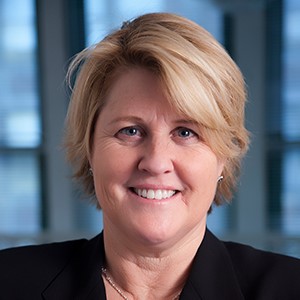
How did you get David on board?
We have worked with David since the inception of Centre for Sport and Human Rights (CSHR). We’ve seen at first-hand how he has shaped the Commonwealth Games Federation (CGF) and their human rights focus, and have been impressed. Further, his input into our work has been invaluable. When he informed us that he was stepping down from his role, we saw an opportunity to turbocharge our engagement with sports federations and event organisers to embed human rights into their organisations.
What does CIPO mean? How will it fit into the organisation?
David will be the Chief Innovation and Partnerships Officer reporting into me as CEO. While we have a very flat structure, there will be three of us in the senior management - William Rook will continue as Deputy CEO, which also encompasses the role of Chief Operating Officer. David will have responsibilities for driving our work to ensure sports federations from across the globe are helped in their individual journeys towards ensuring respect for human rights is embedded in their work and constitutions. He has worked with the full variety of federations in his work at the CGF, so is aware of what’s required at larger organisations who may have begun their human rights journey, through to smaller bodies who perhaps need support to get started.
What will David bring to your team?
Boundless energy, enthusiasm, sports federation expertise, a huge knowledge base, contacts across the industry and a keenness to learn. He also fundamentally lives and breathes our mission, something that comes across every time you interact with him.
How has David’s work at the CGF been influential for CSHR?
I’ve had the pleasure of watching David at close hand as he has led the CGF and delivered complex multi-sport events which have advanced the cause of human rights. His work in Glasgow in 2014 towards inclusion, and in Australia with indigenous people was particularly ground-breaking and we look forward to harnessing that expertise in our wider work.
David is joining at an exciting time for the Centre - tell us about the changes to the structure
CSHR will soon be officially separating from our ‘parent’ organisation - the Institute for Human Rights and Business. We have opened a new office in Geneva where we will be based and have created a Swiss entity with a new governance structure. I’m also excited to launch our new website and branding next month.
David’s joining is part of an expansion of the Centre, who else is joining?
I’m really pleased to welcome three incredible and accomplished women from varied backgrounds into the team. Lucy Amis, Kat Craig and Thays Prado will be joining us to work across the broad range of our projects. They all bring tremendous expertise and energy to CSHR. We will also be appointing a new Board of Directors from all over the world - more on that soon.
David Grevemberg on joining the Centre for Sport and Human Rights
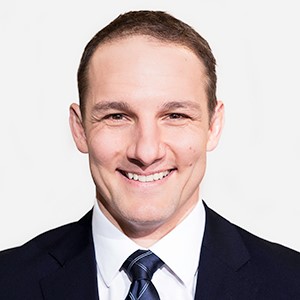
Why are you joining the Centre for Sport and Human Rights?
Over the past 25 years, I have had the privilege to work in various capacities in the world of sport that allowed me to contribute to creating cultures of greater consciousness and commitment towards human rights, shared value and collective impact. Building on the Centre’s evolution since 2018 under the leadership of Mary Robinson and Mary Harvey, I now can focus my passion for sport and human rights on a more universal basis by driving innovation and partnership initiatives that aim to tackle some of the industry’s biggest challenges in terms of safety, responsibility and legitimacy. Together with a great team of experts and partners as well as an extensive and influential global network of engaged stakeholders, the Centre is distinctly placed to continue supporting sport bodies, major event organisers and the entire sport ecosystem in generating substantial social value and harnessing the positive impact of sport for people and their communities.
How have you been involved in the CSHR’s work in the past?
Over the past six years in my capacity as the CEO of the Commonwealth Games, I have both contributed to and benefited from the work of the Centre and its predecessor, the MSE Platform, through various fora, working groups and as a representative member on the CSHR Governance Committee. I have experienced first-hand how effective and beneficial the work of the Centre can be in supporting sport bodies and major sport events in navigating and operationalising their work with the realm of human rights.
What will you add to the organisation?
Having served extensively in executive leadership positions within several international sport bodies, major event organisers and charities, I believe my experience, knowledge and expertise from the world of sport will be complimentary to other specialist areas of expertise already existing at the Centre related to sport, sustainable development, human rights, diplomacy and international relations as well as global policy and leadership. I believe my skills in strategic planning, tactical decision making, coalition and alliance building as well as systems creativity and innovation along with a track record of successfully delivering complex, multi-stakeholder projects will be value added to the work of the Centre and the global sport and human rights movement at large.
What do you hope to achieve in the first year?
- Increased global scale of sport and human rights awareness and education demonstrated through annual development, mobilisation, refinement and promotion of CSHR’s educational curricula, tools and platforms targeted at key stakeholder groups.
- Increased competency, capability and capacity of Sport Bodies and MSE Hosts to prevent human rights violations and contribute to sustainable development through technical cooperation and support initiatives.
- Strengthened position and legitimacy of CSHR as a distinct provider of expertise as a public good and impact facilitator within the worlds of sport and human rights through the establishment of targeted alliances and collaborative shared-value partnerships.
- Supported the development of strategically aligned business systems and communication strategies.
- Publicised sport body and sport event accomplishments, challenges, innovation and failures in respecting, protecting, promoting and enabling human rights in their general practice and annual activity.
- Sustained funding sources for the Centre’s short, medium and long-term activities.
What are the most pressing areas for sport to deal with in the field of Human Rights?
The most pressing areas for sport to deal with in the field of human rights are issues related to safeguarding standards and practices (e.g. child rights, vulnerable groups, etc.) both in practising and delivering (e.g. labour practises, supply chains, etc.) sport, non-discrimination (e.g. gender, ethnicity, ability, religion, orientation, etc.) and effective systems for representation of and remedy for affected groups.
What can the Centre achieve?
The Centre is uniquely placed as a trustworthy and legitimate entity in the world of sport that through innovation and collaboration can enable the entire global sport ecosystem to work responsibly to prevent harm, provide effective and meaningful remedy when harm is done and contribute to moving the dial of systemic and salient issues that compromise and/or violate universal rights and jeopardise freedom, fairness, equality and justice. The Centre can support the world of sport in generating awareness, building capacity and delivering impact aligned with normative international human rights standards and that supports contextual/localised opportunities.
How can sport change society?
Both the practice and business of sport are uniquely placed to help society address some of its biggest challenges and harness unrealised opportunities that create shared value for everyone. The individual and collective skills, values and experiences that we learn and refine through sport and physical activity when practised safely are critical to developing peaceful and prosperous communities everywhere. The multitude of positive benefits and impact that can be derived from sport programmes and events is boundless when planned and delivered responsibly. Sport when given the right chance - can help to build peace, can bring stability and sustainability, can nurture hope, wellbeing and prosperity. However, in contrast, if sport is practiced or delivered in ways that bring harm to others, then it leaves long lasting, detrimental, corrosive and damaging scars and traumatic legacies for those it claims to represent and serve.
